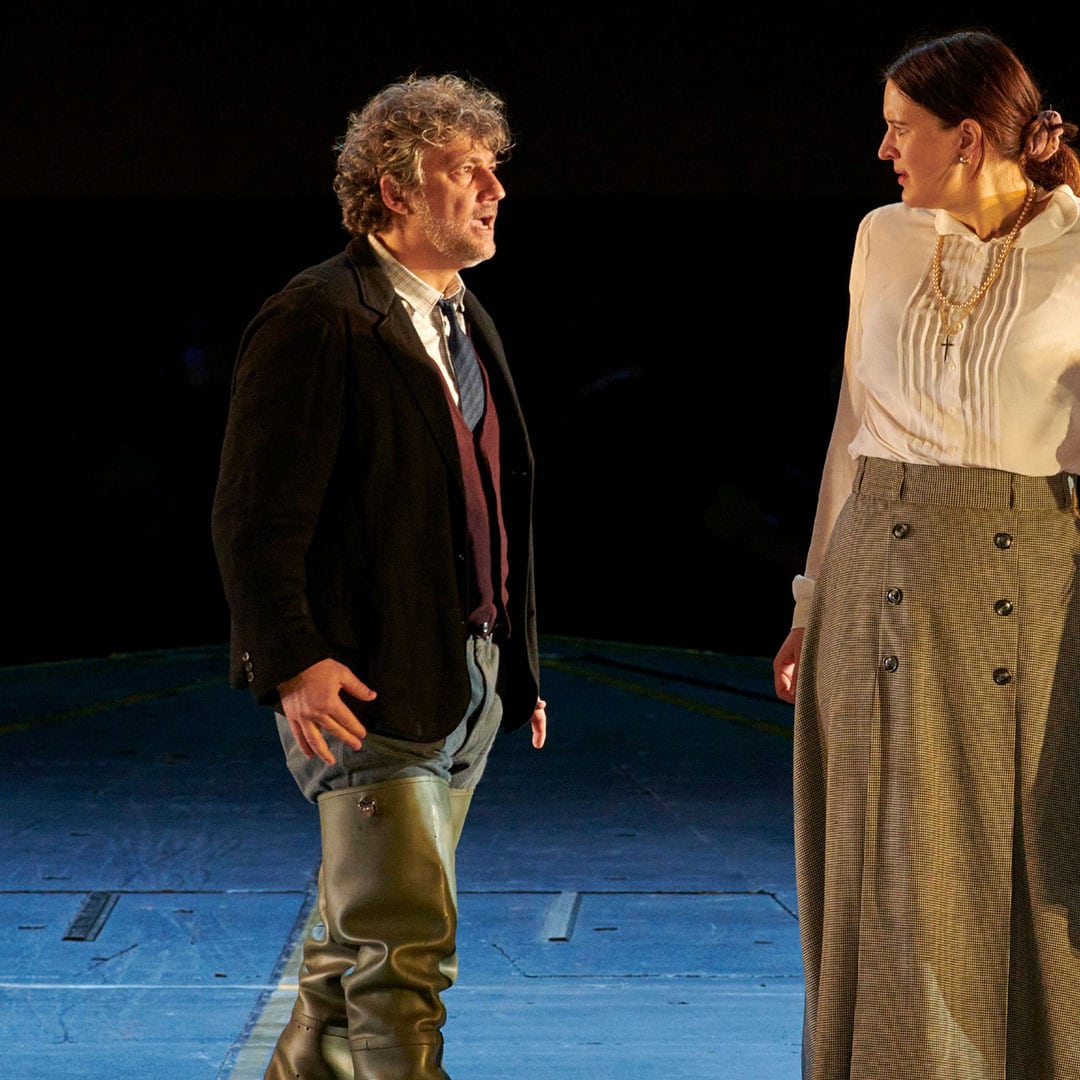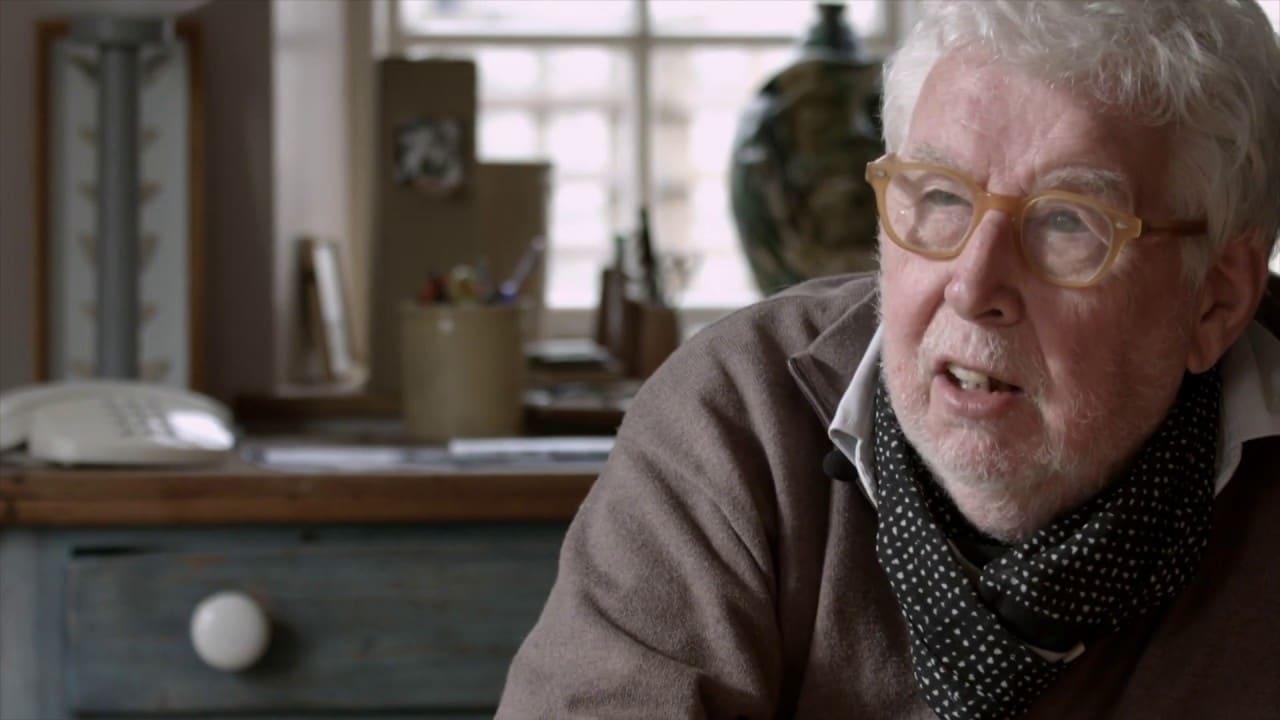Jonas Kaufmann: Peter Grimes is a sadly misunderstood man
NewsFrom an interview with BR in Munich, where Kaufmann is reprising his latest title role:
I feel so sorry for him. I don’t think he’s a real killer. Today you would say: autistic or Asperger’s or whatever. Modern expressions for the fact that in this place where he is arrested, he is simply being crushed by the many, many intrigues that are being spun. And of course it’s tragic that the first boy dies of thirst in a storm because they somehow drift too far and can’t find their way home.
But we also have to put this in the context of how it was, so to speak, back then: Children from the orphanage were kept as cheap slaves for centuries. That is an unfortunate fact. Whether they worked in the mines because they were nice and small and could dig their holes there – and that was no different here in Bavaria – or whether they lived on the coast and then helped the fishermen. And Grimes says himself: I can’t afford it. I can’t afford a second fisherman, an adult, to take with me, that’s impossible. It can only be a child who has to work 24 hours a day for board and lodging, so to speak, and is available. That is very tragic and of course reprehensible from today’s perspective. But you can’t really blame Grimes for that….
Read on here.
As a father of four children, Kaufmann takes a thoughtful approach to a character who can neither apologise nor explain.






It’s not what he thinks about Grimes but how Britten saw the character and what he intended, and every singer has a duty to fulfil that as best as possible and to their best ability for the audience – and make sure one can hear the words. It’s all in Britten’s score, as Heather Harper always said.
Yes and no…yes, a singer needs to read what the composer wrote and follow that map. However, these are individual artists who are allowed, as artists, to bring their own gifts and interpretations to a performance. Otherwise, every performance would look and sound exactly the same. Thank goodness we had Vickers AND Pears, AND Langridge, AND Rolfe-Johnson, etc.
No two performances can never be the same, even from the same singer where conductors, orchestras, singers, voices, venues, etc all change. The fine line is self-indulgent singers – and opera producers and designers – ignoring what is in the score to the point of everything becomes a concept opera and the composer comes last, with singers attempting to be pseudo-intellectuals in magazines and it all becomes about the ‘you’, and then opera loses its way. Britten, like Elgar, Vaughan Williams and Tippett, was maticulous about his speeds, dynamics and marks of expression in the score. Doesn’t mean every singer or every performance will sound the same – far from it. Just means the composer comes first. Yes, thank goodness frcall those tenors and Heather Harper as Ellen, and very different with Pears and Vickers as her tenors. But she didn’t meddle with the score and knew Ben and Peter very well.
But Maria, the only thing in the score is a bunch or words and notes. Anything anyone, even you, does with them is interpretation.
@Alviano
‘Anything anyone, even you, does with them is interpretation.’
This puts the matter too loftily, in my opinion. Not everything one does with a brush or a pencil is genuine painting or drawing, and not everything one does with a bunch of words and notes is interpretation, more often than not it is just painting (singing) by the numbers, another day put in at the office by someone who fancies themselves an artist.
I do not agree. Grimes is rather a child abuser. A victim himself, probably, of abuse, but also a perpetrator of abuse. He is as awful as the raging crowd that comes after him. He is also a sort of a tragic poet or self-aggrandizing prophet and the performer who sings/plays his part has to deal with both the beastly violence and the abyssal poetry. Quite a monster ofa part.( Vickers did it just fine.)
Look at the score and read the libretto. Not sure Britten says Peter Grimes was ever a child abuser. That is reading in something not there. Yes, Vickers was great and I heard his interview on that, but he never saw Grimes as a child abuser.
He was afraid to ”say” it in ”interviews”. But he sang the role without sacrificing any of Grimes s ”unhandsome” features.
Sugar coating Grimes ( ” not a real killer, only a victim of society” blabla) deprives him of his tragic grandeur , but also of the absurd irony that underlies the part.
I’ve seen “Grimes” several times (as well as owning two recordings), and my take-away is more inline with what Kaufmann is saying. Grimes isn’t sadistic. He’s off-balance more ways that one, sure. But he’s not a sadist.
I guess he is a sadist,on the contrary. I cannot understand why in the process of making the character more ”sympathetic”, some choose to ignore the dark core of the character. The dark mystery deeply embedded there. Grimes is/was doing and is/was being done horrible things. The society is to blame, the context, of course, but also something in the character himself must horrify us.His HUMAN nature .
Why does being a famous singer mean I need to hear, read and see his or her drivel?
While I would not be interested in Mr. Kaufmann’s opinion regarding, say, the upcoming US midterm elections, I think his insight into the psychology of his stage character is highly interesting. That is not drivel at all. And even if one disagrees with his take, it is still interesting.
I’m not interested in Mr. Kaufmann’s insights on anything, and this includes armchair pseudo-psychology applied to the roles he is cast in. If you can’t communicate your ideas through _singing_ , your medium isn’t opera. If Mr. Kaufmann were able to communicate insights through singing, he wouldn’t find it necessary to lecture us in print.
What Kaufmann says is very helpful, but he misses the elephant in the room: homosexuality.
True it is never stated, implied, or hinted at in the libretto, but at least we can read out from the composer’s biography.
As a gay man (I am not “queer,” nothing strange about me) I identify profoundly with Grimes. I am not autistic, do not have Asperger’s Syndrome, and have no sexual interest in children–indeed, I avoid them, male and female. But I grew up in a town like the one in the opera, surrounded by people like those in the opera all of whom wanted me to disappear for a reason never stated or implied. The opera brings up such terrible feelings in me that I cannot sit through it.
To reduce Grimes to someone mentally ill or to a sex criminal pulls the teeth from the story and renders it trite. The opera has power for me, and for people like me, because we have been treated like Grimes and have him within us.
Your description sounds more about you than Grimes, and reading into it what benefits you by turning Grimes into being gay in famous Suffolk town. Just because the composer was gay and in a long happy and lasting relationship with Peter Pears doesn’t make every character gay or Grimes, and tgat would have disturbed Britten. Maybe see another opera?
Nasty, small-minded comments, Maria. Every creation is open to those that experience it – but your snidery transgresses into the personal life of other people. Not good.
I am not Maria but I have read this thread. It seems to me that Alviano has laid his personal life open for all of us to read here, including what he isn’t, not only what he is or identifies with, respectively. Where’s the transgression?
For the reasons above I don’t go to Grimes.
I am, however, always amazed how some people, like you, always get bent out of shape when homosexuality is mentioned.
These days lots of people seem incapable of paying any attention to art if they can’t twist it in their heads and make it about themselves. Fascination with oneself in inverse proportion to personal relevance to others? It seems so.
Of course he is gay. A gay in the closet. Or in his hut ( where his otherwise rampant homosexuality focused on minors who are also put to work , beaten up and who disappear in dubious circumstances doesn t add up to his popularity as an operatic character too much).
Maybe insight can be won by reading George Crabbe’s poem from his 1810 collection ‘The Borough’. Britten may well have added a level of ambiguity, designed to encourage reflection. The diversity of opinions on Grimes’s true character indicates that we, the listeners, readers and viewers, are the real beneficiaries of this masterpiece.
Yes, absolutely, go back to the source, but then the score for Britten’s interpretation.
More woke bs run a muck. “Minor attracted person” is the new woke for “child sex abuser”
Yet another apologist for aberrant behaviour. Aren’t we a weird society? We justify and even glorify aberrant behaviour in arts, yet scream bloody murder every time the press reports about a new case in real life. The fact that glorification of fictional cases leads to acceptance and even trivialization of real cases has apparently not entered our understanding.
And yet another person employed in the arts who feels they have to tell us at great length what they think (Or rather, put their PR department to good use.) If you can’t communicate your ideas through _singing_ , your medium isn’t opera. Let us listen to JK’s singing before reading his fashionable insights. Can we hear this interpretation in his singing, can we hear any interpretation _at all_? I can’t. What I hear is same generic singing-by-the-numbers, same mumbled diction in the lower part of the voice regardless of language, same embarrassing vocal emission every time he tries to sing below mf (mp and below inaudible for those sitting farther up in the house, lucky them), wrong voice color for tenor roles.
The beauty of Britten’s operas is their ambiguity. Britten is giving expression to the various aspects of his own personality and sexuality and with all the problems he had in his own life. Kaufman is entitled to see Grimes as a tragic figure person persecuted by the townsfolk just as Budd is a victim of bullying unprotected by the crew.
Britten s artistic merit is to have rendered these individual and collective atrocities highly significant for the entire human nature. To have revealed the tragedy ( absurd farce) of being human by means of profound poetry and music that at the same time horrify and soothe us.